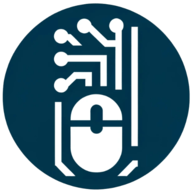4 Innovative Uses of AI in Software Products
Artificial Intelligence is revolutionizing software products across various industries. This article explores 4 innovative applications of AI, from personalized writing assistants to streamlined healthcare processes. Drawing on insights from experts in the field, it reveals how AI is transforming workflows, enhancing customer support, and improving efficiency in unexpected ways.
- AI Replicates Your Unique Writing Voice
- Agentic AI Assistants Transform Workflow Execution
- AI Elevates Customer Support with Context
- AI Streamlines Healthcare Billing Process
AI Replicates Your Unique Writing Voice
The most innovative AI software I've encountered is Penfriend AI's Echo feature, which analyzes your writing to create a personalized tone and style guide. What makes it revolutionary is how it can actually replicate your unique voice across all content it generates, which solves the biggest problem with AI writing today: that soulless, generic quality everyone can spot from a mile away. I've tested dozens of AI tools in my ghostwriting business, but Echo's ability to capture the subtle nuances of personality - like my tendency to use "anywhoodles" instead of "anyway" or my habit of breaking traditional formatting rules - creates an uncanny level of authenticity. Most tone-matching AI just adjusts formality or vocabulary, but Echo actually replicates your structural quirks, sentence patterns, and even your unique humor style.
For writers like me who help executives and founders develop their voice on LinkedIn, this technology is game-changing because it maintains personal brand authenticity while dramatically reducing production time. What's fascinating is how the technology maps your "voice DNA" across multiple dimensions like structure, energy, approach, and stance, creating a comprehensive framework that feels genuinely human rather than robotic.

Agentic AI Assistants Transform Workflow Execution
One of the most innovative uses of AI I've seen -- and that we're deeply inspired by -- is the move toward agentic AI assistants that can interact with a company's real tools and data to perform actual workflows, not just generate text.
Most AI products stop at generating suggestions. But the next wave -- and what I believe is truly groundbreaking -- are tools that go beyond answering, and actually do the work: checking a CRM, summarizing a meeting, replying to a support ticket using company-approved language, or pulling product data before writing a proposal.
This agentic behavior becomes especially powerful when combined with real-time internal data. We've seen companies connect AI to their Notion, Slack, Intercom, and HubSpot -- and the assistant doesn't just "talk" smarter, it becomes a context-aware teammate.
At Calk AI, we're leaning into this space by letting users build no-code assistants that plug into their stack and respond like someone who's been on the team for months -- referencing processes, docs, conversations, and more.
The innovation isn't just in the AI model -- it's in giving that model the right access, memory, and guardrails to be truly helpful and accurate inside a company.
That's where the real value shows up: saving time, reducing repeat questions, and making decisions faster, all while staying within the business's unique language and logic.
AI is evolving from a tool you "ask" to a teammate you can "count on." That shift -- from language generation to workflow execution -- is the most exciting and valuable innovation I've seen so far.
AI Elevates Customer Support with Context
One of the most innovative uses of artificial intelligence I've seen in software is in a customer support platform I recently worked with. The software uses AI-powered chatbots to handle initial customer inquiries, but what sets it apart is its ability to understand and process complex, multi-step issues. Instead of simply responding to basic questions, the AI can analyze the context of a conversation, learn from past interactions, and even escalate certain issues to human agents when necessary, based on sentiment analysis. This capability significantly improves response times and customer satisfaction. The AI also analyzes customer feedback to predict common problems and suggest proactive solutions, which adds another layer of value. For businesses, this means they can offer 24/7 support without sacrificing quality, and customers feel heard and helped much more efficiently. It's a perfect blend of automation and human touch that's truly changed how support teams operate.

AI Streamlines Healthcare Billing Process
One of the most impressive uses of artificial intelligence I've seen in software came from a client in the healthcare space. They implemented an AI-powered tool to automatically review patient records and flag possible billing errors and insurance mismatches. The system used machine learning to recognize patterns in medical codes and compare them to past claims. It didn't just speed things up--it reduced costly human errors and saved the staff hours of work each week.
We supported the rollout of that tool, and I remember watching the staff shift from skeptical to amazed. At first, they didn't trust a system that "read" documents like a human. But after a few weeks, the accuracy spoke for itself. The software didn't make decisions for the staff--it just helped them make better ones. That's the key. AI in this case didn't replace the billing team; it helped them focus on the more complicated tasks that still need a human touch.
If you're thinking about using AI in your business, I'd suggest starting with a single pain point. Look for a process that's repetitive and data-heavy, like scheduling, ticket triage, or reporting. Test one tool and track the impact. You don't need to chase the flashiest tech--you need the one that makes a real difference for your team. That's where the value is.



